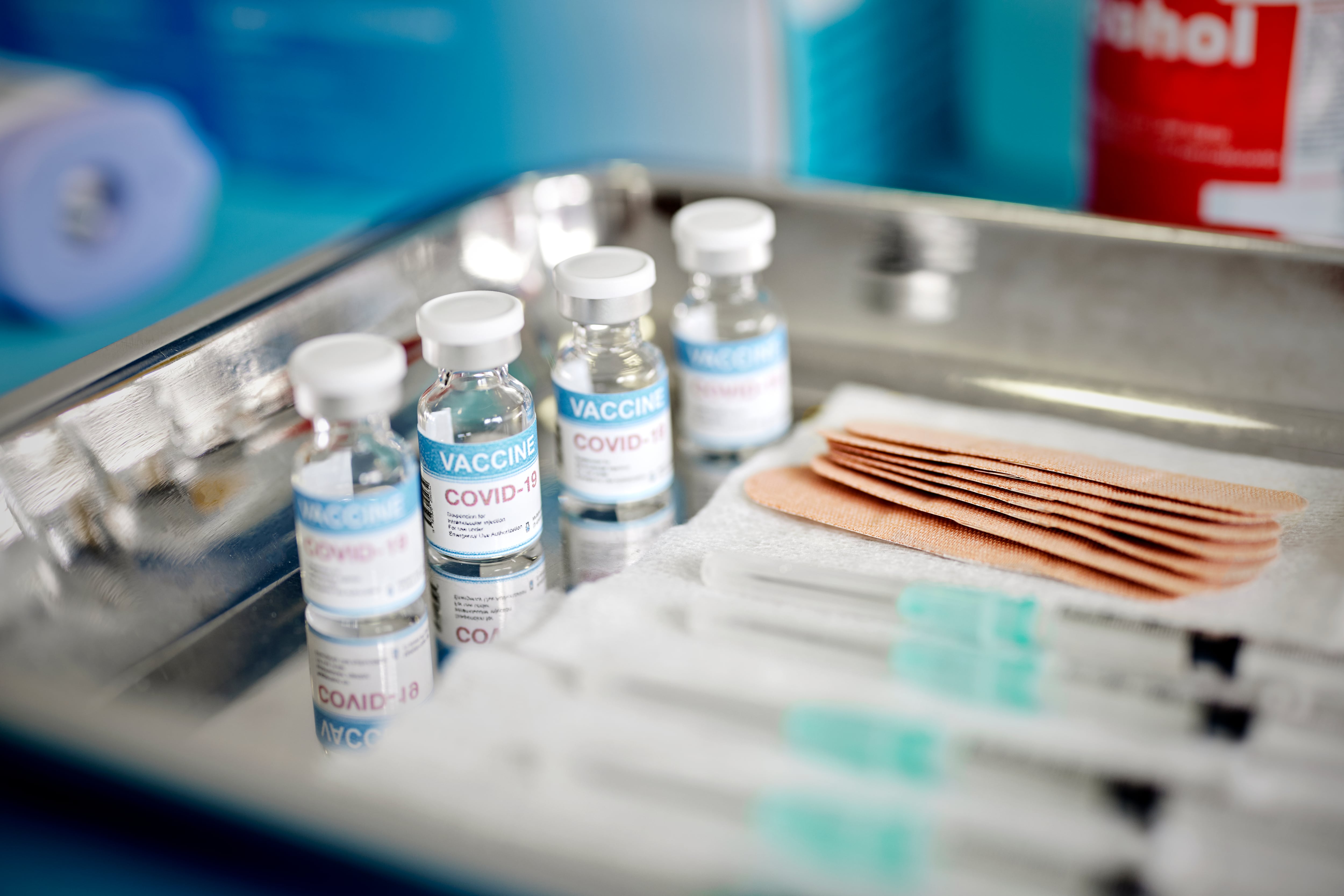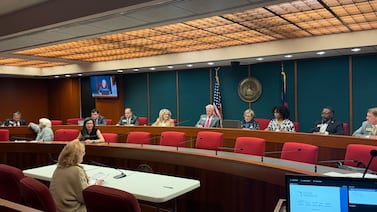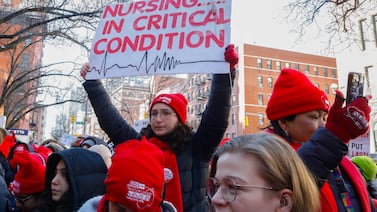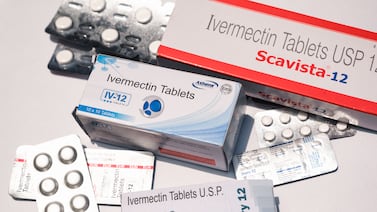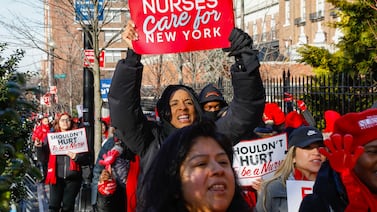This article originally appeared at Your Local Epidemiologist New York. Sign up for the YLE NY newsletter here. Public health, explained: Sign up to receive Healthbeat’s free New York City newsletter here.

Amid federal vaccine regulation upheaval, last week, Gov. Kathy Hochul signed Executive Order 52 to make Covid-19 vaccines more available to New Yorkers. This was one of the first moves across the nation to ensure better access to Covid-19 vaccines. But this is a temporary Band-Aid, and much more needs to be done. The overall message is this: You can now get a Covid-19 vaccine at New York pharmacies without a prescription.
What the heck is going on?
Right now, access to Covid-19 vaccines depends on your state. Many state laws, including New York, link vaccine access directly to guidance from the Food and Drug Administration or the Centers for Disease Control and Prevention’s Advisory Committee on Immunization Practices. But in June, the ACIP was replaced with members handpicked by Health and Human Services Secretary Robert F. Kennedy Jr., and they declined to vote on Covid-19 vaccine recommendations. Their next meeting is set for next week.
Until that happens, guidance is stalled, leaving state statutes tied to ACIP in limbo. In the meantime, there are a few things states can do depending on politics, legislature, etc.:
- Change the legislation
- Declare an emergency/executive order
- Change the standing order (so pharmacists can prescribe)
- Change the pharmacy board statutes
Last week, New York chose No. 2 and No. 3.
What exactly did the executive order do?
EO 52 declared a state of disaster emergency in New York effective Sept. 5 through at least Oct. 5, 2025. Declaring a state of emergency gives the governor the legal authority to temporarily change existing state regulations. In public health, states of emergency are typically declared to unlock faster action.
Within the state of emergency, the order broadened pharmacists’ ability to prescribe and administer Covid-19 vaccines to individuals age 3 and older without needing prescriptions from doctors.
The EO provides a temporary solution while New York works on long-term legislation to protect access to vaccines in the state. In other words, the law will need to change to decouple recommendations and pharmacy access from the federal government. No one ever saw the need for this before, but here we are.
This will not only help with Covid-19 vaccines, but other vaccines should the federal government continue to chip away at recommendations.
Why did New York take this step now?
There are two big reasons why New York took this step:
- To broaden and protect access to vaccines. As I shared last week, current federal vaccine guidance effectively leaves many people under 65 without clear access to the Covid-19 vaccine. In practice, that looks like pharmacies, including big chains like CVS or Walgreens/Duane Reade, limiting who could get vaccinated. This executive order changes that in New York. It allows pharmacists to both prescribe and administer vaccines to anyone 3 and older, regardless of shifting CDC/ACIP recommendations.
- To defend public health and science. Covid-19 vaccines remain our best protection against severe illness, and no new evidence says otherwise. Yet recent federal changes have limited their access. New York’s executive order is a safeguard against those limits, ensuring that the state government can make its own evidence-based recommendations, and help preserve access to care.
How does this impact vaccine access and equity?
- More convenience and reduced barriers. Before the executive order, a prescription was required to get a Covid-19 vaccine at most New York pharmacies. Now, you can just go straight to the pharmacy, no prescription needed. This is important because 90% of Americans get their seasonal vaccines at pharmacies. Requiring a prescription would mean that many people likely wouldn’t get vaccines this year, but not everyone has time to get a prescription or even has a primary care provider.
- Inclusivity: The executive order expands eligibility to cover children age 3 and older, pregnant people, and all adults, regardless of underlying conditions, groups previously squeezed out by federal restrictions.
- Strengthening the role of pharmacists: Parts of New York state, particularly rural communities and some neighborhoods in New York City, experience shortages of doctors or health clinics. Allowing pharmacists to provide and prescribe Covid-19 vaccines can be especially impactful in these underserved communities.
How does NY compare to other states?
New York is part of a growing trend of states stepping up to make Covid-19 vaccines more available in the midst of federal restrictions. It’s helping lead a regional coalition of New England states to coordinate health guidance. On the West Coast, California, Oregon, Washington, and Hawaii formed a West Coast Health Alliance to do the same.
Individual states are also taking action on their own. For example:
- Massachusetts now requires insurers to cover vaccines recommended by the state.
- New Jersey, Connecticut, Colorado, and New Mexico issued orders allowing pharmacists to give Covid vaccines without prescriptions.
With the Common Health Coalition, YLE recently broke down which states are moving forward — you can find that resource here (though things may change quickly as more states take action).
Conversely, some states are moving in the opposite direction. Florida, for instance, has rolled back routine school immunization requirements, raising concerns about long-term herd immunity in the state.
Will insurance cover vaccines?
This is a big “to be determined” for New York. Unlike Massachusetts, the New York executive order does not say anything about insurance coverage for Covid-19 vaccines. It’s safe to assume that if you have an underlying condition or if you’re over 65, insurance will cover the vaccine. This is because the vaccine is considered “on label.” For everyone else (who would be considered “off label”), it’s best to call your insurance provider and ask directly. Covid vaccines can run about $200 out of pocket without insurance.
What’s temporary, and what’s next?
The EO is in effect until Oct. 5 to give New York time to create more permanent vaccine protection legislation. At which point, the EO can be extended if new legislation hasn’t been put in place.
What’s my take on this?
We needed New York to act. In the absence of a stable CDC, state health leaders need to step up and fill the void. Hochul’s executive order is a big step in that direction. It enables continued, more equitable access to Covid-19 vaccines in New York, even amid federal uncertainty.
But the work can’t end here. Florida recently ended routine school immunization requirements, and similar rollbacks could spread to other states. This raises the risk of confusion not just about Covid vaccines, but about routine vaccines, too. We also know that the ACIP may be questioning other routine vaccinations in their upcoming meeting, Sept. 18-19. (I’ll be back with updates on that.) New York needs to be proactive about protecting all immunizations, not just Covid-19.
Does this solve the issue completely?
Not quite. There are a couple of important questions remaining:
- Legal liability. Pharmacies and pharmacists need clarification on what legal protections they have when prescribing or administering Covid vaccines under this order because the recommendations differ from federal entities like the FDA and CDC.
- Insurance coverage. It’s uncertain if Covid vaccines will be consistently covered by insurance.
- Implementation. Each pharmacy will ultimately decide how its pharmacists will carry this out, which could affect access across the state if some choose to follow the more restrictive federal recommendations.
Bottom line
Pharmacies can now give Covid-19 vaccines without a prescription in New York. We’ll update you on outstanding questions, like which pharmacies are offering it, once we know.
Love,
Your NY Epi
Dr. Marisa Donnelly, PhD, is an epidemiologist, science communicator, and public health advocate. She specializes in infectious diseases, outbreak response, and emerging health threats. She has led multiple outbreak investigations at the California Department of Public Health and served as an Epidemic Intelligence Service Officer at the Centers for Disease Control and Prevention. Donnelly is also an epidemiologist at Biobot Analytics, where she works at the forefront of wastewater-based disease surveillance.

